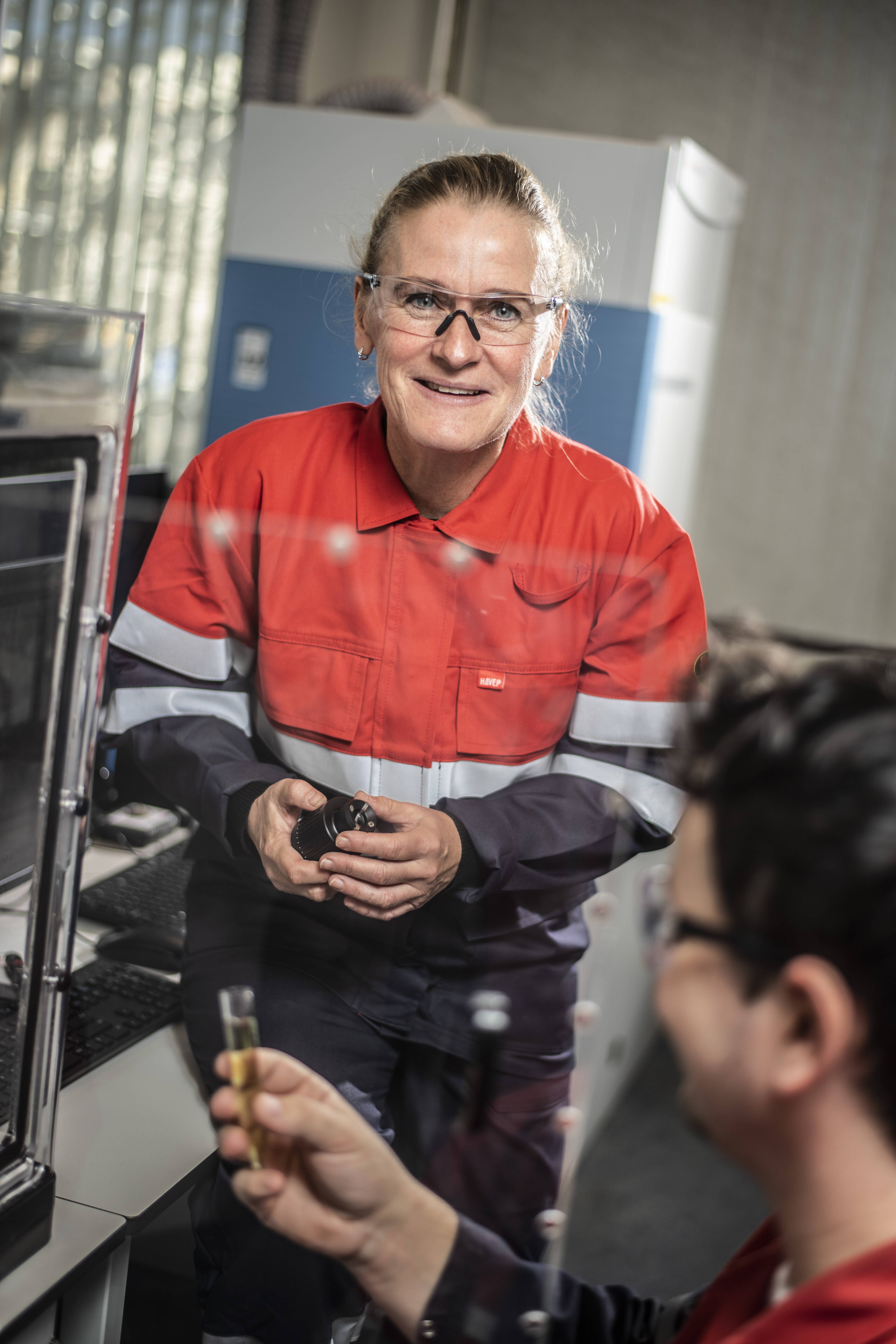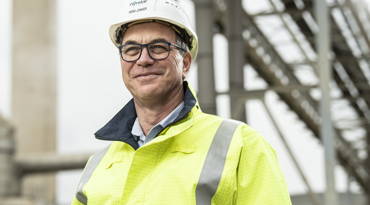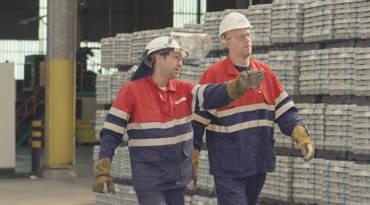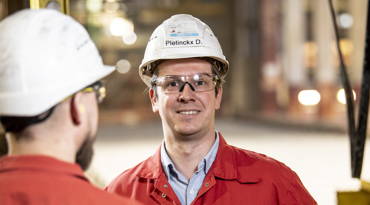As Head of Analytical Services, Corrie van Rijn and her 25 employees are constantly looking for new opportunities to make the production of Nyrstar's zinc smelters in Belgium and the Netherlands even more efficient and sustainable. ‘Every new measuring technology is an opportunity to do better.’
Corrie van Rijn (51) began her career 29 years ago as an assistant analyst at the Nyrstar head office in Budel, the Netherlands. She still works there, but today is managing a 25-people team at Nyrstar’s Budel and Balen/Pelt sites. A key role in the Analytical Services department.
‘On graduating in 1992, I was looking for a job in the laboratory world, with career opportunities and close to home. Four laboratories fitted that picture, but ultimately I opted for Nyrstar because of the company’s size and its role as a global player in metal processing.’
Thermostat
As an engineer with a preference for sustainable development, it’s a choice she has not regretted. ‘In the lab we analyse, among other things, incoming raw materials, we monitor the environmental standards within which we operate using measuring and control technologies, and we ensure that all our products meet the high quality requirements for which we’re known.’
Together with her team, van Rijn also takes care of all analysis equipment at the Nyrstar sites in Budel, Balen and Pelt. ‘Our operators use this fully automatic
equipment both for quality checks and to monitor the production process. If necessary, automatic intervention is also taken. You can compare it with a thermostat that continuously measures the temperature in the house and controls the heating boiler on that basis.’
Zinc dust
Working more sustainably and ever more cleanly is another item on the lab's agenda. ‘In recent years we’ve conducted lots of research into circular solutions,’ van Rijn tells us.
‘For example, we reuse zinc dust from the purification of zinc sulphate solutions on the site. Removing the impurities from this solution is necessary to produce high-purity zinc, but also affects electrical efficiency. That sounds a bit technical, but the essence is that less zinc dust ensures better purification, lower energy consumption and reduced production costs.’
Return
The Nyrstar lab in Budel also conducts extensive research into the use of recycling products. ‘For example, we investigate whether we can reuse products

containing zinc in our process. In this way we can reuse materials in our plant many times.’
And what happens on a large scale in the plant is often first tested ‘small-scale’ in the lab. ‘Zinc production demands a lot of electricity. We therefore regularly test in the lab whether we can make our power consumption even more efficient. Zinc dust recovery is an example of this.’
‘Our technologists also undertake numerous scale tests of new processes and installations, for which we carry
I opted for Nyrstar because of the company’s size and its role as a global player in metal processing.
Corrie van Rijn,
Head Analytical Services Budel, Balen/Pelt at Nyrstar
out the analyses. In this way we succeed in making our production processes continuously more efficient,’ van Rijn says.
Opportunities
These are responsibilities and challenges she really enjoys. ‘There are always new projects in the pipeline, production is constantly innovating and every new installation always creates new research and development opportunities. So yes, it is and remains a fascinating job. I hope to continue to be able to contribute a lot to this company’s sustainable operation.’


